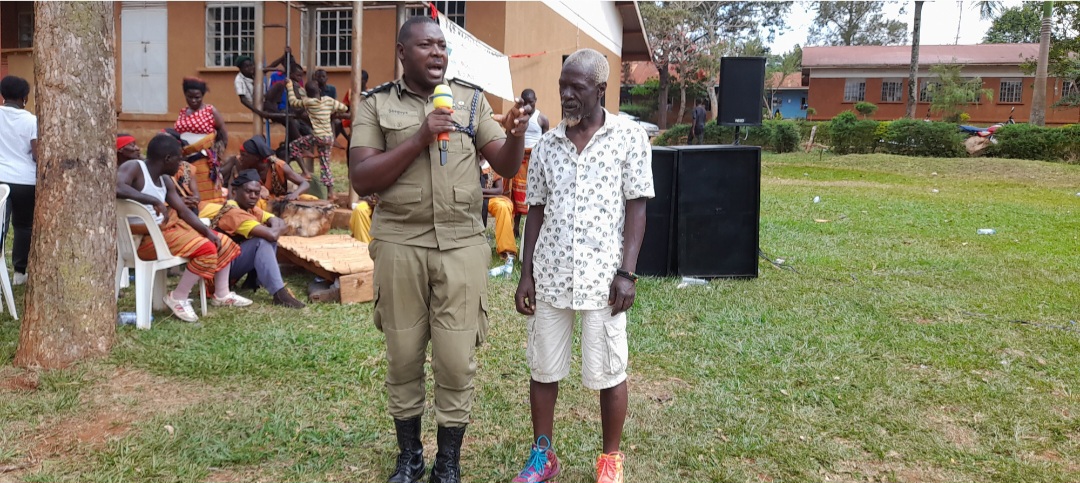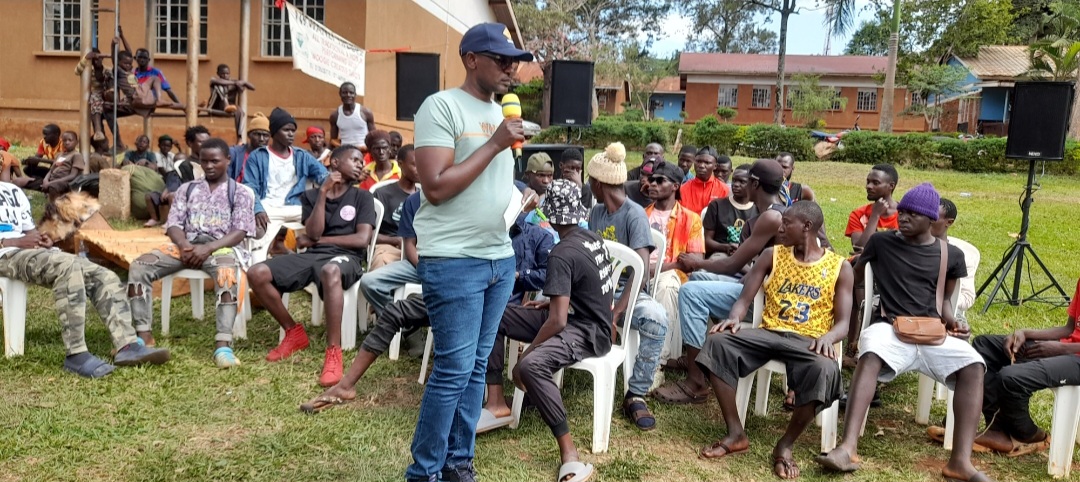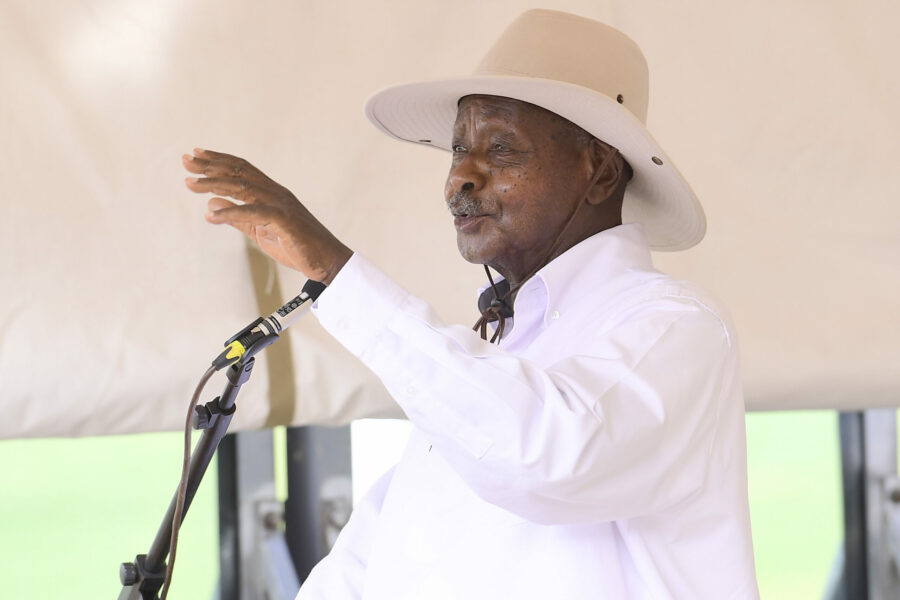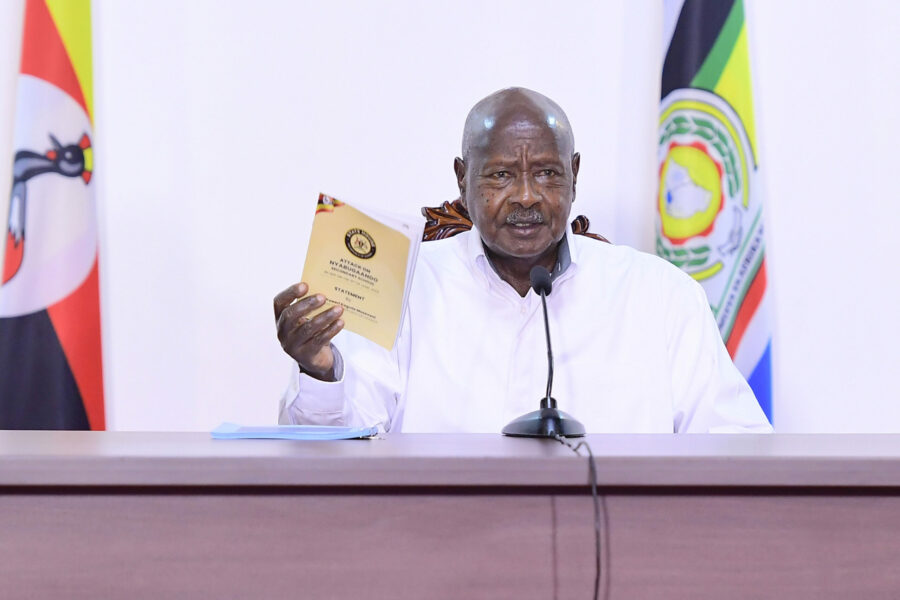IN common use almost every word has many shades of meaning and therefore needs to be interpreted by the context. For example the word FEAR has two meanings: Forget Everything and Run or Face Everything and Rise. The choice is yours.
If you hear some group of people referring to ASP Kenneth Ahimbisibwe the Kiira Regional Community Liaison Officer(RCLO) or Maj Emma Kutesa the Presidential Assistant in charge of Special Operations as ‘bayaye’,many will quickly rush to accuse me of disrespect and rudeness.
But these two, probably with others whom I don’t know are real ‘bayaye’, why, you may be asking me, because the word muyaaye is also an insult.
During a function held at St John SS,Wakitaka situated about 5kms along Jinja-Kamuli road where close to 300 youth who called themselves ghetto boys and girls kept referring to the two officers as ‘ono muyaye mulungi…’,literally meaning that muyaye is good.
The CLO who was the MC of the day went further by using some deeper queer soft-shouting sounds that always calmed the ghetto who often tried to become irate and disrupt the meeting.
None of the two complained or rebuked the ghetto fellows; instead they also kept using the same adjective to the audience, to the amusement of the audience who included a handful of civil servants and politicians.
In short, the two security officers, one from the Uganda Police Force (UPF) and the other from the UPDF attached to State House.
“…the youth are our people and we need them more, since they are the future leaders and if we don’t organize them now then the future may not be the way we want…”,Ahimbisibwe remarked, adding “…the mission of the Uganda police Force says it’s to secure life and property in a committed and professional manner in partnership with the public to promote development…”as justification for his close collaboration with the ghetto so that they are reoriented with a new mindset who can embark on socio-economic transformation.

The gist of this article is not about the word muyaaye, nor is it to present any scholarly or academic paper, nonetheless, it’s important to remind ourselves of meanings surrounding the word muyaaye (sing) or bayaaye (plu).
The word muyaaye or bayaaye means ‘hooligan(s) ‘and has been in use since the mid 1970s as a kind of derogative or disparaging term against the urban youth who had migrated from the rural settings in search of opportunities.
In the recent couple of years, the word ‘muyaaye’and ‘ghetto’ have been used synonymously (interchangeably) to mean more or less the same thing and in most cases negatively or positively depending on the context.
A girl can say, ‘…my muyaaye’(boyfriend) drinks a lot, while a boy will say, “…let me take this chips and chicken to my muyaaye(girlfriend) again another person can say ‘take away your muyaayeeism from my business, daughter/son or property’.
What is ghettoism, especially in the Ugandan context?
According to an article written by Camila Flamiano Domonoske,a Business journalist attached to National Public Radio(NPR),a non-profit media organization based in California, the word ‘ghetto’ is an etymological mystery.
Whatever the root language, the word’s original meaning was clear: ‘the quarter in a city, chiefly in Italy, to which the Jews were restricted…”she writes.
According to the article, cities like Venice, Frankfurt, Prague and Rome in the 16 and 17 centuries forcibly segregated their Jewish populations, often walling them off and submitting them to onerous restrictions.
While these ghettos got dismantled by the close of the 19th century, but instead of disappearing in the mist of history, the ghettos resurfaced with a more dangerous agenda than segregation under the Nazi Germany.
German forces established ghettos in more than 1,000 cities across Europe where they were isolated, controlled and deprived of resources. Many died because of the hard conditions while some survived.
By the 1960s and 1970s there were increasing voices on the need to do something about family stability which was the main cause of more children joining the ghetto club.
Hungry children deprived of the basics of life like food, shelter and clothing would grow to become angry and cause problems to the immediate community and the wider one.
These youth who live as ghettos do not enjoy their situation but are there because of lack of choice, otherwise the word ghetto is neither a nice one nor a useful adjective.
Back home in Uganda the word or issue of ghetto, took a centre stage when NUP President Robert Ssentamu Kyagulanyi rose to prominence in the political arena by after winning an election as MP rising on the ghetto overtone.
Now the ghetto issue is a complicated matter appearing as a very beautiful but troublesome girl who is being courted by every suitor as individual politicians or political parties.
Most politicians now have their own “bayaaye” or “ghetto” that can be hired to ‘discipline’ rivals or opponents using different methods, like mainstream and social media attacks, physical attacks, blackmails and others.
Statistics from the police indicate that the rate of crimes are usually low during election campaigns because most or all the ghetto boys and girls are literally busy, courtesy of the different political players who use their services, selfishly though.
Why the Government should have an exclusive National Programme for the Ghetto.
Waiting for the ghetto boys and girls to commit crime and brutally arrest them will serve a short term but does not solve the bigger socio-economic issues which also have political implications.
The kind of engagements the Jinja Deputy RCC Lydia Kalemera initiated a couple of weeks ago which culminated into more than 300 ghetto youth openly denouncing criminal activities is a good move.
The government should design a tailored programme targeting these groups of people who are dotted in all cities, municipalities and town councils where they are a security threat.
It’s not enough to explain away their concerns that the government programmes like Emyooga and PDM cater even for the youth, because by their looks and presentation, most civil servants easily get irritated or disgusted and give them no attention.
In the end, they monitor and look for the beneficiaries of these programme and attack them at night and rob the money they received to fight poverty.
They are the people who stage roadblacks, they ambush women and grab their bags and other valuables, they break into homes and they kill.
Some experts may argue that the more a nation develops, the more crimes soar as one of the costs for economic growth and development.
True, but the opposite is also true that the more people have something, the more they become zealous and protect their assets, small as they might be, otherwise those without anything to lose can choose to do anything.
Finally, can some of our best brains(scholars)from Makarere University or any other, pick keen interest and do research on ghettoism,Uganda as a case study.
About the author:
Rev Nelly Nelsons Otto is an Anglican (Church of Uganda) priest and veteran journalist based in Jinja, Uganda.
0776462509/0701463519
Do you have a story in your community or an opinion to share with us: Email us at Submit an Article









